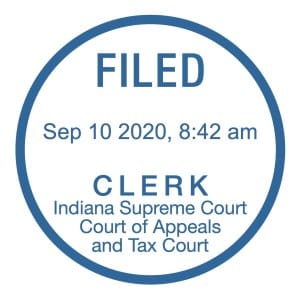Court of appeals ruling stands, leaves intact Bloomington’s ordinance protecting against discrimination based on sexual orientation

Bloomington’s human rights ordinance, with its prohibition against discrimination based on sexual orientation, won’t get a review by Indiana’s Supreme Court.

A deadline has expired with no motion to put the matter in front of the state’s highest court.
That means a mid-September ruling by the Court of Appeals, in favor of Bloomington’s ordinance, is the final word on the case.
It arose from a lawsuit claiming that Bloomington’s ordinance—along with those of Carmel, Columbus, and Indianapolis—were unconstitutional.
The unsuccessful lawsuit was filed in 2015 by the Indiana Family Institute, Indiana Family Action, and American Family Association. The Court of Appeals concluded there was no no reason to believe that the cities’ ordinances had any effect on those companies’ activities.
The September opinion, on which all three judges concurred, states, “In sum, the companies’ own designated evidence establishes that the cities
have neither interfered with nor chilled their First Amendment rights.”
The Supreme Court didn’t decide not to hear the case. Instead, what the city’s Friday press release described was the news of an expired 45-day deadline for the companies who’d lost the case, to file their motion to have the case heard by the Supreme Court.
The press release quotes Bloomington’s mayor, John Hamilton, saying, “Bloomington is proud of our legacy as a human rights leader in the state, and we’re gratified that this misguided and scurrilous attempt to erode our Human Rights Ordinance, and those of other cities, has been soundly dispatched.”
The phrase “sexual orientation” as a protected class was added to Bloomington’s human rights ordinance through an amendment enacted by the city council in 1993.
The amendment passed 9–0 on a council consisting of Patricia Cole, Kirk White, Jack Hopkins, Jim Sherman, Regina Miller, Pam Service, John Fernandez, Paul Swain, and Iris Kiesling. White was the lone Republican of the nine.
White’s support for the amendment came after he said he had a family member who was gay. The Herald-Times quoted White as saying, “My family member deserves not to be discriminated against.”
Over the last six months, White has been in the public eye every Friday afternoon as part of a press conference given by local leaders on the community’s response to the COVID-19 pandemic. He is Indiana University’s assistant vice president for strategic partnerships and the lead for IU Bloomington’s COVID Response Unit.




Comments ()